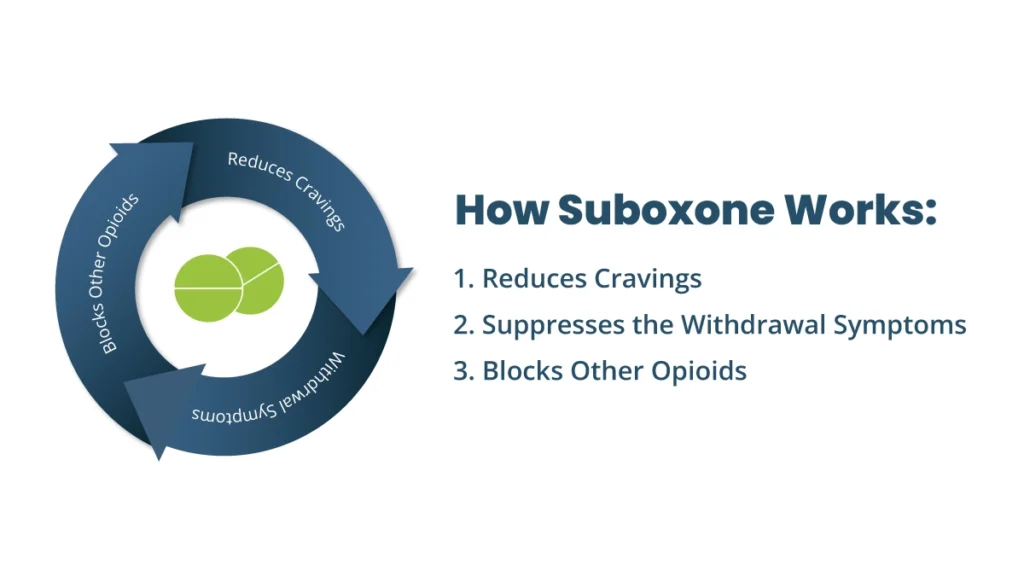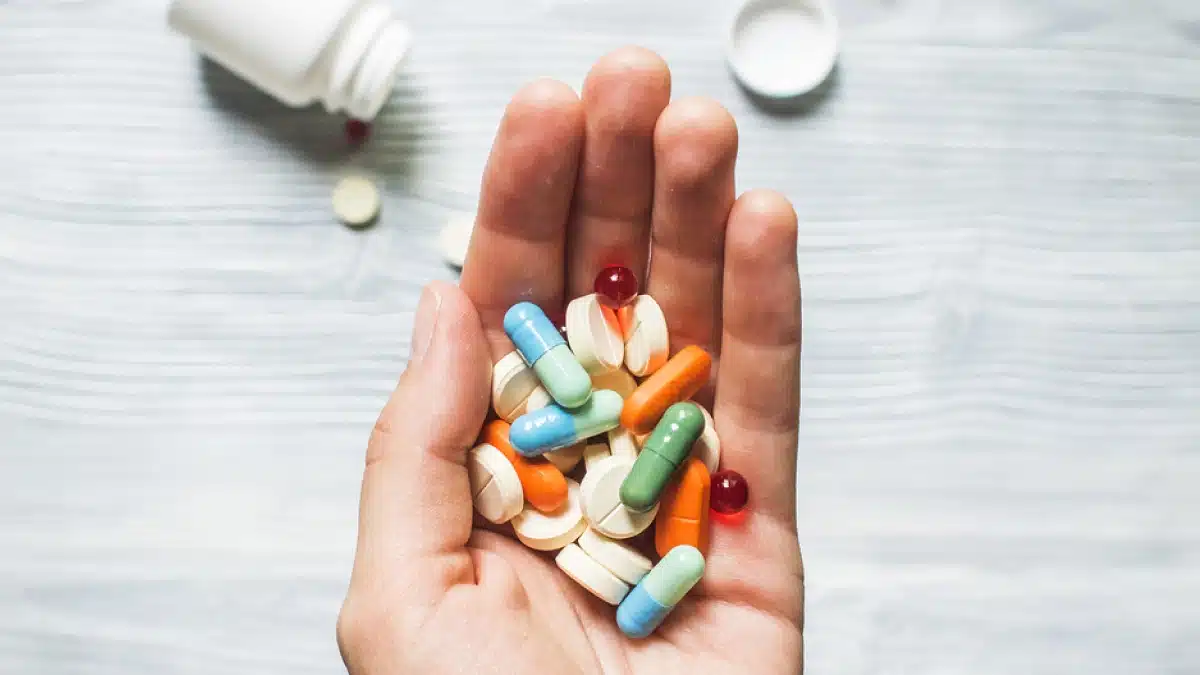Suboxone addiction refers to the dependency on Suboxone, a medication designed to help individuals manage opioid addiction. Suboxone contains buprenorphine and naloxone, which ease opioid withdrawal symptoms and reduce cravings.
However, long-term use can result in tolerance, dependence, and addiction, altering brain chemistry and prompting compulsive use. This dependency can impact daily life, relationships, and overall well-being, requiring intervention for recovery.
Fortunately, several treatment options are available for Suboxone addiction. Keep reading as we explore various methods that aim to address the addiction’s physical, mental, and emotional aspects, guiding individuals toward a drug-free lifestyle.
Key Takeaways
Suboxone addiction is a dependency on a medication used to manage opioid abuse issues. Here is what this article entails:
- Suboxone’s combination of buprenorphine and naloxone mitigates withdrawal symptoms and cravings while minimizing the potential for misuse.
- Recognizing Suboxone abuse involves observing physical, psychological, and behavioral changes in individuals.
- Effective treatment involves options like detox, FDA-approved medication, therapy, and holistic approaches tailored to individual needs.
Contact The Haven Detox-South Florida at (561) 328–8627 to reclaim control and seek support in overcoming Suboxone addiction.
How Suboxone Works

Suboxone is a prescription medication that plays a pivotal role in treating addiction to opioids, such as prescription painkillers or heroin. It contains two primary ingredients: buprenorphine and naloxone. Understanding the science behind Suboxone involves delving into how these components interact and influence the brain.
Role of Buprenorphine and Naloxone
Suboxone contains two active ingredients: buprenorphine and naloxone.
Buprenorphine: It’s a partial opioid agonist, meaning it activates the same receptors in the brain that opioids do, but to a lesser extent. It helps reduce cravings and withdrawal symptoms without inducing the intense euphoria associated with full opioid agonists like heroin or oxycodone.
Naloxone: This is an opioid antagonist, which means it blocks the effects of opioids by binding strongly to opioid receptors without activating them. If someone misuses Suboxone by injecting or snorting it, the naloxone component induces severe withdrawal symptoms, acting as a deterrent to abuse.
How Suboxone Affects the Brain
Suboxone, through its combination of buprenorphine and naloxone, works to:
Reduce Cravings: By binding to the opioid receptors, buprenorphine can alleviate the intense cravings that often drive opioid addiction. This helps individuals in addiction recovery to focus on rehabilitation efforts without being consumed by the desire to use opioids.
Suppress the Withdrawal Symptoms: Buprenorphine also helps in reducing the severity of withdrawal symptoms. Since it’s a partial agonist, it can prevent or lessen the onset of intense withdrawal symptoms experienced when someone stops using full opioid agonists.
Blocks Other Opioids: The naloxone component in Suboxone discourages misuse by preventing the full effects of other opioids. If someone tries to use opioids while on Suboxone, the naloxone can block the high and potentially induce withdrawal symptoms.
Remember, like any prescription drug, there is a potential for misuse or addiction to Suboxone itself, which is why it’s typically administered as part of a comprehensive treatment program under the supervision of a healthcare provider.
Understanding Suboxone Addiction: Signs and Effects
Suboxone is a vital tool in the treatment of opioid use disorder (OUD) due to its ability to mitigate withdrawal symptoms and reduce cravings. However, like any medication, it can be abused, leading to physical dependence. Here are signs of Suboxone addiction and its adverse effects:
Signs of Suboxone Abuse
Recognizing signs of Suboxone abuse involves paying attention to physical, psychological, and behavioral changes in individuals.
- Physical Symptoms: Watch out for changes in physical appearance, such as drowsiness, slowed breathing, or problems with coordination. Pinpointed pupils, similar to those seen with opioid use, can also be a sign.
- Psychological Symptoms: Keep an eye on mood swings or sudden changes in behavior. Someone misusing Suboxone might also show signs of confusion, irritability, or even depression.
- Behavioral Symptoms: Pay attention to changes in daily routines or habits. This could include secretive behavior, doctor shopping to get more medication, or taking higher doses than prescribed.
Effects of Suboxone Abuse
Understanding the effects of Suboxone abuse involves recognizing the physical, psychological, and social consequences it can have on an individual.
- Physical Effects: Prolonged substance abuse can lead to physical consequences, including respiratory depression, liver damage, and cardiovascular issues. Chronic constipation and sleep disturbances may also arise.
- Psychological Effects: Abusing Suboxone can impact mental health, causing mood swings, anxiety, or depression. It might also interfere with cognitive abilities, making it hard to concentrate or think clearly.
- Social and Behavioral Effects: Someone misusing Suboxone might withdraw from friends and family members, lose interest in activities they once enjoyed, or face problems at work or school due to their behavior or mood changes.
Recognizing these signs and effects is crucial for early intervention and support. Seeking medical help can make a significant difference in overcoming Suboxone addiction.
Breaking Free: The Path to Suboxone Addiction Recovery
When addressing Suboxone addiction, various medical treatment approaches are available, each tailored to meet individual needs and circumstances.
Medical Detoxification
Medical detox involves safely managing withdrawal symptoms under medical supervision. This process allows individuals to transition off Suboxone while minimizing the discomfort associated with withdrawal. Medical professionals may administer medicines to alleviate symptoms and ensure a smoother detox experience.
Inpatient/Residential Treatment
Inpatient or residential treatment provides a structured environment for individuals to address Suboxone addiction. It involves residing at a facility for a specified duration and receiving intensive therapy, medical care, and support. This immersive approach offers a supportive community and round-the-clock care.
Medication-Assisted Treatment (MAT)
Medication-assisted treatment programs involve the use of FDA-approved medications, such as buprenorphine and methadone, with counseling and behavioral therapies. It helps manage unpleasant withdrawal symptoms and cravings while addressing the psychological aspects of addiction. This approach promotes stability during recovery.
Behavioral Therapies
Behavioral therapies, such as cognitive-behavioral therapy (CBT) or contingency management (CM), focus on modifying behaviors and thought patterns related to substance use. Individual and group therapy sessions help individuals develop coping skills, recognize triggers, and adopt healthier behaviors.
Support Groups
Local support groups, like Narcotics Anonymous (NA) or SMART Recovery, offer a community of individuals navigating similar challenges. These groups provide peer support, guidance, and a non-judgmental space to share experiences and strategies for overcoming addiction.
Holistic Approaches
Holistic approaches encompass a range of complementary therapies, including yoga, mindfulness practices, art therapy, and acupuncture. These techniques aim to address the whole person—mind, body, and spirit—to promote overall well-being and aid recovery.
Each of these treatment options plays a vital role in addressing Suboxone addiction. Combining multiple approaches tailored to an individual’s needs yields the most effective outcomes in overcoming drug use disorder and leading a fulfilling, drug-free life.
Frequently Asked Questions
What are the most common side effects of Suboxone?
The potential side effects of Suboxone include nausea, headache, constipation, insomnia, and sweating. These effects may vary in intensity and duration among individuals.
Should Suboxone be taken daily?
Yes, Suboxone is typically taken daily or as prescribed by a healthcare professional. Consistent daily use helps manage opioid cravings and withdrawal symptoms and supports individuals in their recovery journey.
Is Suboxone a good treatment for opiate addiction?
Yes, Suboxone is considered an effective treatment for opiate addiction. It helps manage withdrawal symptoms, reduces cravings, and supports individuals in their recovery journey from opioid dependence.
What are the long-term effects of taking Suboxone?
Long-term use of Suboxone might lead to dependency, though when taken as prescribed, it helps sustain recovery by managing cravings and reducing the risk of opioid misuse.
Trust The Haven Detox-South Florida With Your Recovery
Feeling lost in the struggle against Suboxone addiction doesn’t mean it’s the end. At The Haven Detox-South Florida, we’re here to guide your journey back to normalcy. You can reclaim control and rediscover a life free from addiction.
Our comprehensive approach begins with a tailored medical detox program, ridding your body of harmful toxins and setting the stage for long-term recovery. Our residential treatment combines medication, therapeutic interventions, recreational activities, and round-the-clock support to help you overcome substance use disorder (SUD).Call us now at (561) 328–8627 and seize the opportunity for a fresh start.








